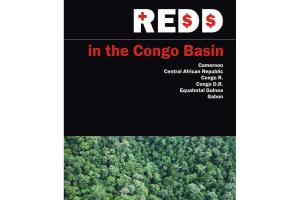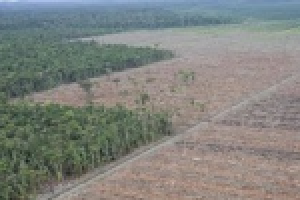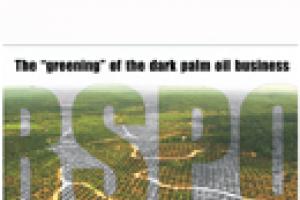The forest of the Congo Basin expands over an area of continuous tropical rainforest cover only second to that of the Amazon forest. Those forests are currently receiving a lot of attention within the Climate Change negotiations.
The Green Economy
The Green Economy is a tactic used to “clean up” the image of corporations rather than address corporate capture and capitalism as the true drivers of deforestation. False solutions promoted under the Green Economy include certification, sustainable forest management, ecosystem services, REDD+, the bioeconomy, nature-based climate solutions, and zero net deforestation. Rather than stopping it, these “solutions” support corporate-driven destruction that is causing a deep social and ecological crisis.
Other information
10 December 2010
A controversial proposal to protect forests worldwide is on the table at the U.N. Climate Change Conference in Cancún. Reducing Emissions from Deforestation and Forest Degradation (REDD), would include forests in the emerging carbon markets, allowing governments and corporations to purchase permits to protect forests as a way to offset the carbon released into the atmosphere through its industrial pollution. Though often reported as a means to stop deforestation, there is widespread opposition to REDD from environmental and indigenous groups.
Action alerts
9 December 2010
Cancun, December 9, 2010
If you would like to sign the position as an individual or on behalf of an organization or network, please send an email to: mujeresporjusticiaclimatica@gmail.com
Other information
3 December 2010
By Chris Lang -
If you’re looking for a list of what’s wrong with REDD, then look no further. The Climate Justice Research Project at Dartmouth College has just produced this top 10 list (fully referenced version below):
1. Calculation of offsets is highly sensitive to choice of baseline methods and data availability, raising the potential for fraudulent “hot air” resulting from corruption
Bulletin articles
29 July 2010
For many years now the world expansion of the pulp and paper business has been increasingly covering millions of hectares of land with large scale monoculture tree plantations. Mainly disguised as “forests” these “green deserts” have encroached on vast territories and rich ecosystems mostly in the global South.
Bulletin articles
29 July 2010
On 15 July we received a message from the Amazonas Sustainable Foundation (FAS) expressing that “the article ‘Brazil: Juma REDD test case in the Amazon’, published at the WRM monthly bulletin issue 155, presents various inaccuracies regarding both information and overall understanding of the Bolsa Floresta Program, as well as the Juma REDD Project. Therefore, the Amazonas Sustainable Foundation (FAS) sent clarifications to WRM in order to be published at the WRM’s website.”
Bulletin articles
29 July 2010
Most Baka, Bagyeli and Bakola, recognised as “people of the forest,” still rely on hunting and gathering to secure their livelihoods, and even though some also cultivate annual crops, the majority still rely on the forests. For them, the forest is their ancestral home, their reliable grocery, the root of their existence, and their customary right (seeWRM Bulletin Nº 87).
Bulletin articles
29 June 2010
At present, the initiative for Reducing Emissions from Deforestation and Forest Degradation (REDD) is rather a collection of proposals and some pilot schemes. However, it is being strongly pushed and at a remarkable speed inside as well as outside the United Nations process, with the aim of including carbon forest in the array of mechanisms for carbon permits and carbon offsets.
Bulletin articles
30 May 2010
In August 2009, the International Finance Corporation (IFC), and shortly thereafter the wider World Bank Group (WBG) of which it is part suspended finance for the palm oil sector. This was done in response to critical complaints by Indonesian NGOs and indigenous peoples’ organizations and international NGOs which triggered a damning audit report by the IFC’s own Compliance Advisory Ombudsman.
Bulletin articles
29 April 2010
Last month, a new Australian-Indonesian Forest Carbon Partnership was announced under the scheme of the International Forest Carbon Initiative (IFCI) - a government initiative, with implementation jointly managed by AusAID and the Department of Climate Change. The A$30 million funded REDD (Reducing Emissions from Deforestation and Degradation) trial project will be implemented in the Indonesian Jambi province located on the east coast of central Sumatra.
Bulletin articles
29 April 2010
Criticism of the ineffective and unjust solutions to climate change which under carbon compensation and trading pretend to continue business as usual, are mounting amid global civil society.
Publications
11 March 2010
Over the past few decades, oil palm plantations have rapidly spread throughout Asia, Africa and Latin America, where millions of hectares have already been planted and millions more are planned for the next few years. These plantations are causing increasingly serious problems for local peoples and their environment, including social conflict and human rights violations.




